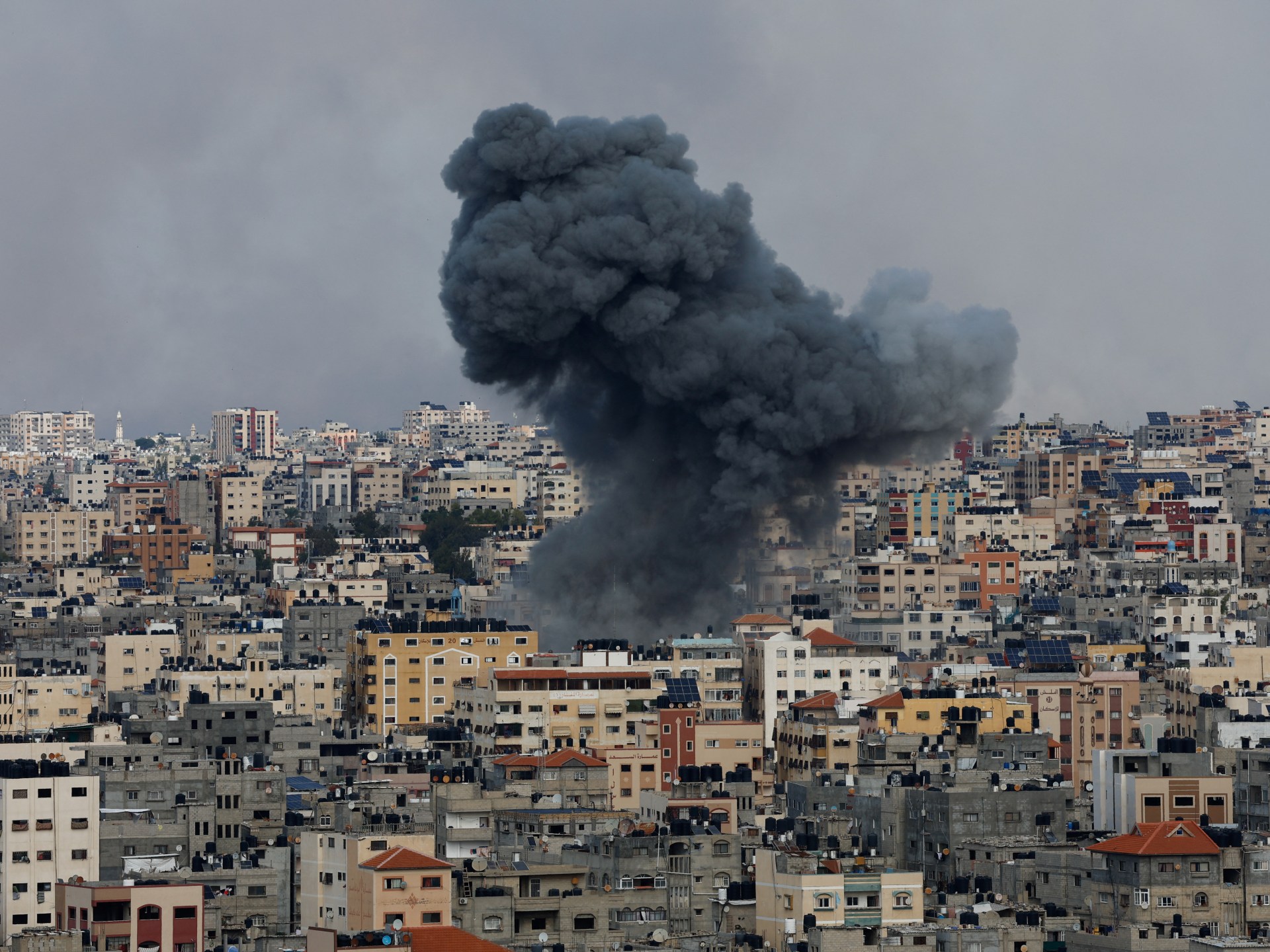Current Events in Israel

Israel continues to navigate a complex landscape of political, security, economic, and social challenges. The nation’s recent history has been marked by a series of events that have shaped its present and will likely influence its future. This section provides a comprehensive overview of the most pressing issues facing Israel today.
Political Developments
The Israeli political landscape has been characterized by instability and frequent elections in recent years. This has led to a cycle of coalition governments, each with its own unique challenges and priorities. The current government, led by Prime Minister Benjamin Netanyahu, represents a right-wing coalition that has pledged to focus on issues such as security, economic growth, and strengthening ties with international allies.
Security Situation
Israel faces a number of security threats, both internal and external. The most pressing of these is the ongoing conflict with the Palestinians in the West Bank and Gaza Strip. This conflict has been a source of violence and instability for decades, and efforts to reach a lasting peace agreement have been largely unsuccessful. In addition to the Palestinian conflict, Israel also faces security threats from neighboring countries, such as Iran, Lebanon, and Syria. These threats have been exacerbated by the rise of extremist groups in the region, such as Hezbollah and Hamas.
Economic News
Israel’s economy has generally performed well in recent years, with strong growth rates and low unemployment. The country is a hub for technology and innovation, and its economy is heavily reliant on exports, particularly in the fields of software, cybersecurity, and pharmaceuticals. However, Israel also faces economic challenges, including a high cost of living, a widening gap between rich and poor, and a growing reliance on foreign investment.
Social Issues and Cultural Trends
Israeli society is characterized by a diverse population, with a mix of Jewish and Arab citizens, as well as immigrants from around the world. This diversity has led to a rich and vibrant culture, but it has also created challenges related to social integration, cultural identity, and religious freedom. Israel has also seen a rise in social movements in recent years, particularly those focused on issues such as environmental protection, social justice, and LGBTQ+ rights.
Historical and Cultural Perspectives

The story of Israel is intricately woven with the threads of history, culture, and conflict. Understanding its past is crucial to grasping the complexities of the present. From ancient times to the modern era, Israel has been a crossroads of civilizations, a melting pot of diverse cultures, and a stage for enduring struggles.
Historical Context of the Israeli-Palestinian Conflict
The Israeli-Palestinian conflict has its roots in the early 20th century, when the Zionist movement sought to establish a Jewish homeland in Palestine, a region inhabited by an Arab population. The British Mandate for Palestine, established after World War I, aimed to create a Jewish state alongside an Arab state, but ultimately failed to achieve this goal.
The 1948 Arab-Israeli War, following the declaration of Israel’s independence, resulted in the displacement of hundreds of thousands of Palestinians and the creation of a new geopolitical reality. Since then, the conflict has been marked by cycles of violence, negotiations, and unresolved issues, including territorial disputes, refugee rights, and security concerns.
Cultural Tapestry of Israel
Israel is a vibrant mosaic of cultures, reflecting the diverse backgrounds of its people. Jewish communities from around the world, each with their unique traditions and customs, have contributed to the country’s rich cultural heritage. Alongside the Jewish population, there are significant Arab, Christian, and Druze communities, each adding their own distinctive flavors to the national fabric.
The influence of different cultures is evident in Israel’s art, music, literature, cuisine, and architecture. From the ancient synagogues of Jerusalem to the modern art galleries of Tel Aviv, from the traditional hummus and falafel to the innovative culinary creations of Israeli chefs, the country’s cultural landscape is a testament to its diverse heritage.
Technology and Innovation in Modern Israeli Society
Israel has emerged as a global hub for technology and innovation, with a thriving start-up ecosystem and a strong focus on research and development. The country’s technological prowess is attributed to several factors, including:
- A highly educated workforce with a strong emphasis on science and engineering.
- A culture of entrepreneurship and risk-taking.
- Government support for research and development.
- Close collaboration between academia, industry, and the military.
Israeli companies have made significant contributions in fields such as cybersecurity, artificial intelligence, biotechnology, and agriculture technology. The country’s technological advancements have not only transformed its economy but also have a profound impact on its society, shaping its infrastructure, communication, and daily life.
Perspectives on Key Issues in Israeli Society, Israeli news
Israeli society is characterized by a range of perspectives on key issues such as religion, politics, and social justice. These perspectives are often shaped by factors such as religious beliefs, political ideologies, and personal experiences.
- Religion: Israel is a state with a Jewish majority, and religious observance varies widely among its citizens. While some Israelis are deeply religious and follow strict interpretations of Jewish law, others are secular or practice a more liberal form of Judaism. The role of religion in public life, including issues such as marriage, education, and military service, is a subject of ongoing debate.
- Politics: The Israeli political landscape is diverse, with a wide spectrum of parties representing different ideologies, from left-wing to right-wing. Political discourse is often polarized, reflecting deep divisions on issues such as the peace process, security, and social welfare. The country’s political system, with its frequent elections and coalition governments, can lead to instability and difficulty in implementing long-term policies.
- Social Justice: Israel faces social challenges related to inequality, poverty, and discrimination. The country’s socioeconomic disparities are reflected in the gap between its wealthy and poor populations, as well as in the experiences of different ethnic groups. Issues such as housing affordability, access to healthcare, and education are central to the social justice debate in Israel.
International Relations and Diplomacy: Israeli News

Israel’s international relations are a complex tapestry woven with threads of historical alliances, strategic partnerships, and ongoing challenges. Navigating this landscape, Israel has established itself as a significant player in global affairs, fostering collaborations and advocating for its interests on the world stage.
Relationship with Key International Partners
Israel’s relationships with key international partners are multifaceted, driven by shared interests, strategic considerations, and historical bonds. The United States remains Israel’s most important ally, providing unwavering political, military, and economic support. This partnership, rooted in shared values and strategic alignment, has been a cornerstone of Israel’s security and stability.
Europe, while diverse in its perspectives on the Israeli-Palestinian conflict, maintains significant economic and diplomatic ties with Israel. The European Union is a major trading partner and a source of technological collaboration. However, ongoing tensions over settlements and human rights issues occasionally strain relations.
Israel’s relationships with regional powers are marked by a complex mix of cooperation and competition. Egypt, after signing a peace treaty in 1979, has emerged as a crucial partner, facilitating security cooperation and fostering economic ties. Jordan, following the peace treaty in 1994, maintains a stable relationship, though tensions over Jerusalem and the Palestinian issue persist.
Israel’s Role in International Organizations
Israel actively participates in various international organizations, advocating for its interests and engaging in global issues. As a member of the United Nations, Israel has consistently raised concerns over terrorism, human rights violations, and the threat of nuclear proliferation. However, its involvement in the UN has been often marked by criticism and controversies, particularly regarding the Palestinian issue.
Israel’s engagement in international organizations extends beyond the UN. It actively participates in the World Trade Organization (WTO), fostering economic integration and promoting free trade. Israel is also a member of the Organization for Economic Cooperation and Development (OECD), collaborating on economic and social policies.
Challenges and Opportunities
Israel faces a number of challenges in the international arena, including:
- The ongoing Israeli-Palestinian conflict, which continues to attract international scrutiny and criticism.
- The rise of anti-Semitism and the delegitimization of Israel on the international stage.
- The need to balance its security concerns with its commitment to human rights.
- The growing influence of regional powers, such as Iran, which pose a threat to Israel’s security.
Despite these challenges, Israel also enjoys significant opportunities:
- Its strong economic performance and technological innovation, which attract foreign investment and partnerships.
- Its growing influence in the global tech sector, particularly in areas like cybersecurity and artificial intelligence.
- Its potential to play a leading role in promoting peace and stability in the Middle East.
Key Agreements and Treaties
| Agreement/Treaty | Date | Key Provisions | Impact on Israel’s Diplomatic Landscape |
|---|---|---|---|
| Treaty of Peace between Israel and Egypt | March 26, 1979 | Established formal peace between Israel and Egypt, ending a state of war that had lasted for decades. | Marked a significant shift in the Middle East, paving the way for further peace negotiations and regional cooperation. |
| Treaty of Peace between Israel and Jordan | October 26, 1994 | Established formal peace between Israel and Jordan, ending a state of war that had lasted for decades. | Furthered regional stability and contributed to a more peaceful environment in the Middle East. |
| Oslo Accords | September 13, 1993 | A series of agreements between Israel and the Palestine Liberation Organization (PLO), aiming to establish a Palestinian state. | Significantly advanced the peace process, but ultimately failed to achieve a lasting solution to the Israeli-Palestinian conflict. |
Israeli news – Berita di Israel sering kali berpusat pada konflik dengan Palestina, namun terdapat juga isu-isu penting lainnya seperti ekonomi dan sosial. Untuk memahami dinamika politik di kawasan ini, penting juga untuk mengikuti perkembangan di Iran, negara yang sering menjadi pusat perdebatan di Israel.
Anda dapat membaca lebih lanjut tentang berita Iran di news iran dan melihat bagaimana isu-isu ini saling terkait dengan situasi di Israel.
The latest news from Israel highlights the ongoing conflict, with tensions rising on both sides. While we focus on international events, it’s crucial to remember the importance of preparedness for local emergencies. In Northeast Ohio, for instance, residents are urged to be prepared for any potential natural disaster, such as northeast ohio emergency , by having a well-stocked emergency kit and a plan in place.
Returning to the Israeli news, it’s important to stay informed and engage in constructive dialogue to promote peace and understanding.
